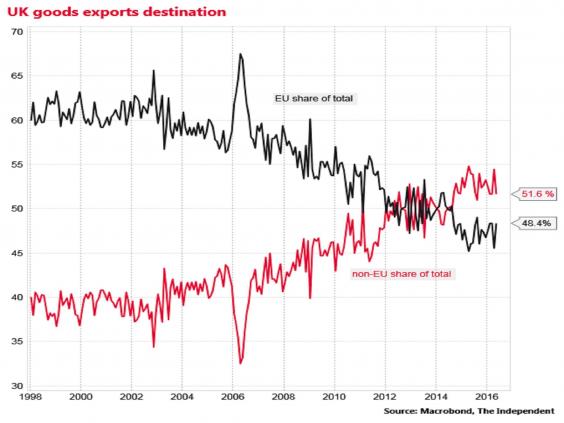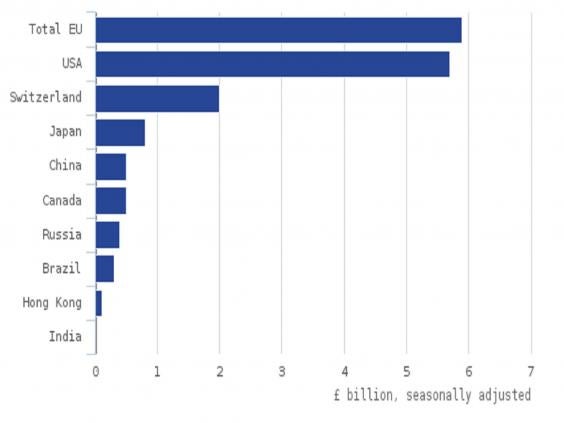No British prime minister in modern times has experienced a plunge in fortune like Tony Blair's.
Cheered to the echo as he left the Commons chamber for the last time as prime minister in 2007, after 10 years of largely untroubled dominance, the tragedy of Iraq quickly ensnared him so completely that by this summer he admitted he would be a liability in the campaign to keep Britain in the European Union. The old Blair magic had turned to sand.
But it had once seemed like magic. A parliamentary majority in 1997 of proportions that no-one in politics could remember, and along with it a feeling that like Margaret Thatcher, whom he'd watched in amazement as a young MP in the 1980s, he had set a national mood that made a permanent break with the past.
Then, after Bill Clinton had welcomed him on to the world stage, came George W Bush.
The Chilcot report lays out the consequences of that relationship - the "whatever" memo of support to the president in 2002 will surely stand as its emblem - and catalogues Blair's journey to the assault on Baghdad and his inability to control, perhaps even to influence, the chaos that followed.
Why?
I watched him in Chicago in April 1999 talking about a new world order in a now-famous speech, a rookie prime minister - in office for less than two years - making the case for liberal interventionism against despotic regimes as if he were a veteran statesman.
He was buoyed by a natural self-confidence, and something more at that particular moment - the belief that he had succeeded in persuading an American president to commit ground troops in the Balkans, against the weight of congressional and public opinion, to get rid of the last of the satellite Soviet dinosaurs, Slobodan Milosevic in Serbia.
That deal with Clinton was the making of his relationship with Bush.
When the Twin Towers came down nine months after Bush entered the White House, Blair's words were the most powerful that Americans heard from abroad - eloquent, and from the heart.
Most of them knew little of him but, by the time he went to Washington for private conversations in the days after 9/11, he had already started to take on heroic status. And some of those with him on that day marked a decisive change in his demeanour and belief after talking with Bush, alone in the Blue Room of the White House.
The conviction that the world had changed irrevocably was one that would always torment him, and it fed a habit when talking about world affairs - in contrast, intriguingly, with his attitude at home - to talk about black and white, good and evil.
In parts of the Bush White House, that was a gift from the gods. Vice-President Dick Cheney was the leader of those whose eyes had never turned from Iraq, and the most determined of those who called themselves neo-conservatives.
They saw the 1990-91 Gulf War as unfinished business, and could hardly believe their luck in having a Labour prime minister who was willing to join a war coalition. It was in effect to give powerful cover to an administration struggling for international support - with Blair setting aside the concerns of many of his officials (including some who saw the "whatever" memo before it was sent to the White House and were horrified by its tone, and the implicit promise of unconditional support).
Such was Blair's confidence at that time - greatly bolstered by the Tories' leadership travails and the consequent weakness of the parliamentary opposition - that no-one could hold him back. His instinct for "sofa government" had full reign, and the relationship with Washington after 9/11 was so strong that a near-inevitable course was set.
Gordon Brown, his iron chancellor, absorbed himself in the economy and declined to intervene strongly in foreign affairs. In the Foreign Office itself, Jack Straw shared his own worries in many hours of phone calls with his American counterpart, Gen Colin Powell.
But Powell, a former chairman of the Joint Chiefs of Staff, was a weak secretary of state - not trusted by the ideologues who were pressing the president towards a confrontation with Saddam, and outside the White House inner core.
We now know, from Chilcot, what the consequences were. Fragmentary and thin intelligence was used to feed certainty, not to spread doubt; Blair's formidable political command meant that some officials became courtiers; there was too little appetite to question the assumptions that were driving policy. In short, the fabled Whitehall machine didn't do its work.
Alastair Campbell, director of communications, was having video conference calls with the White House every afternoon. Blair and Bush were talking regularly, so intimately and informally that some officials who saw the transcripts afterwards had to work hard to decipher precisely what each of them had meant in their exchanges.
This is not to say that Blair was determined on war, come what may. He wasn't. Along with his hope - however far-fetched - that Saddam might be persuaded to co-operate with UN weapons inspectors, he argued well into the spring of 2003 for a second UN resolution to authorise war if necessary. It was meant to give everyone more time.
But the Americans were on a fast track, and in the end Blair's commitment to Bush was too strong. He came to believe that scepticism would be a kind of betrayal - a surrender to the policy of appeasement that he'd warned against in Chicago in 1999.
Since he believed absolutely in the existence of Saddam's weapons of mass destruction - mistakenly - he convinced himself that too much delay would be a display of weakness. No-one could change his mind.
Although he defended his judgements after Chilcot was published, he knows well how great the cost has been. In Iraq, and for him.
The prime minister who showed patience and ingenuity in Northern Ireland, subtlety in Europe, and who was notably suspicious of an ideological approach to domestic affairs, become a true believer. There was an element of naivete in his approach to the hard-liners around Bush - confessing, for example, that he didn't really know what a neo-conservative was.
once heard Hillary Clinton in a private moment expressing astonishment at his lack of doubt, using a withering American phrase popularised after the Jonestown mass suicide. "What's happened to Tony," she asked. "He's started drinking the Kool Aid."
She meant that he had abandoned all caution and every sliver of scepticism. And he had. Although it would be foolish to suggest that he didn't understand the cost of war, nor give it deep thought, his loyalty to Bush had become so strong after 9/11 that it trumped everything else.
The result was the invasion of 2003. The American timetable was set, and Blair couldn't change it. Or at least believed that he couldn't.
One lingering question remains, and will lie unanswered. Could Blair have exercised decisive restraint if he had threatened to withdraw his support? Dick Cheney and Donald Rumsfeld would have been contemptuous, but what of the American people?
There are some people who believe that he underestimated his own significance at that time. A public signal of real alarm from America's principal ally, a figure hugely popular in the United States, might have had more impact than even he believed.
We can't know. We do know that he had become determined to show no sign of weakness, and it was costly. Great conviction; not enough doubt.
Think of one day, a few months after the war began. Blair addressed both houses of Congress in Washington and got more than a dozen standing ovations. Heady stuff.
A few hours later, flying over the Pacific, he was told of a melancholy event at home. Dr David Kelly, a weapons expert at the Ministry of Defence, had been found dead, two days after giving evidence to the Foreign Affairs Select Committee about his doubts over weapons of mass destruction.
Two separate events. One tragedy.
Iraq has come to dominate the Blair legacy to such an extent that many of his notable achievements - the Good Friday agreement, devolution to Scotland and Wales, the minimum wage and a number of social reforms are doomed to shelter under its shadow.
Historians in the future will be able to restore some balance to the record (and to assess whether some classic Blair reforms, like the Private Finance Initiative and student loans and NHS reorganisation, have stood the test of time), but not yet.
His tragedy is that the progressive figure he wanted to be - the first prime minister born after World War Two, who gave the Labour Party a new appeal to the generation dubbed "the millennials" - will be obscured by his most momentous decision.
All his party's current travails tend to be interpreted against that background, as if it is still essentially an argument about him. He will have to wait for that to change, and it may take some time.
James Naughtie is BBC News Book Editor and presents Bookclub on BBC Radio 4. He was a presenter on the Today programme from 1994 to 2015.



